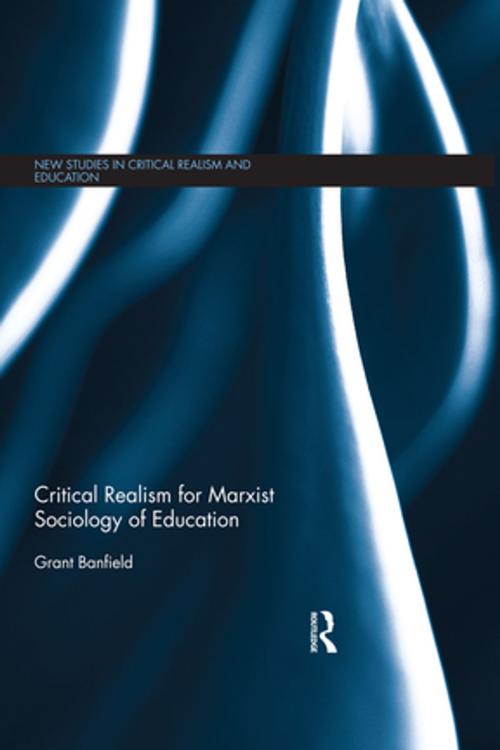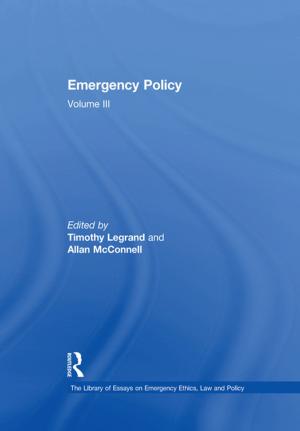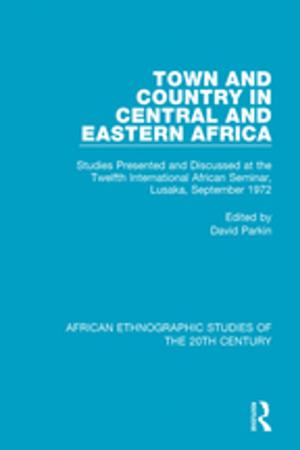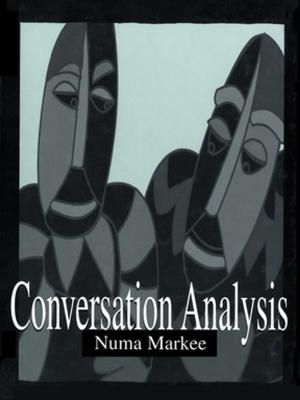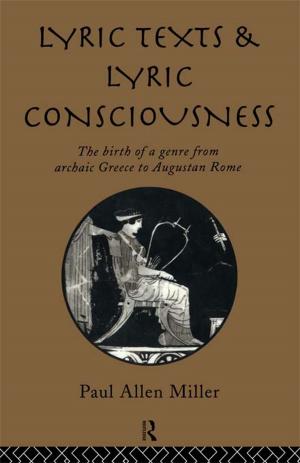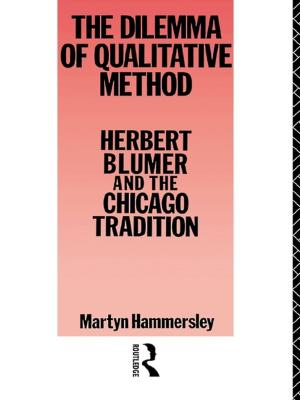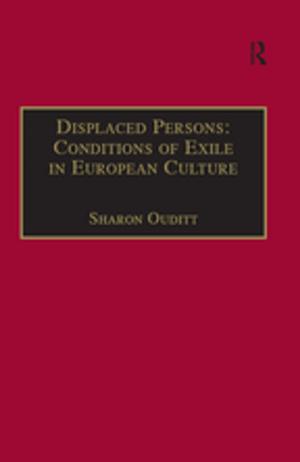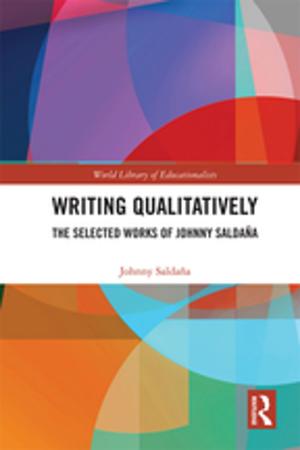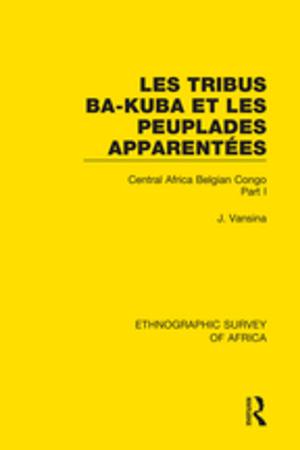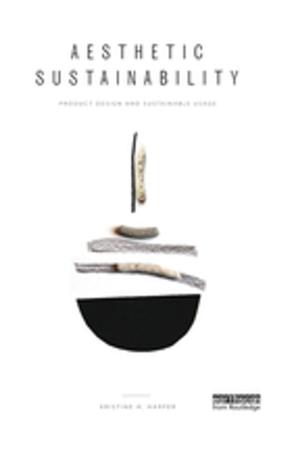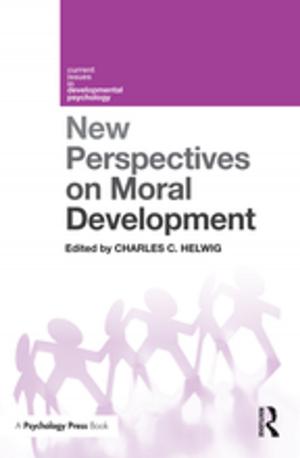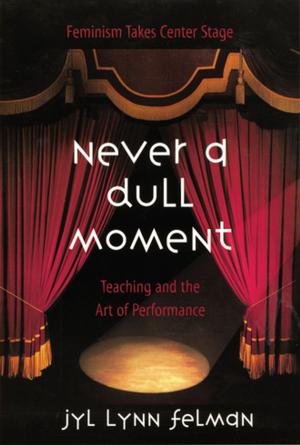Critical Realism for Marxist Sociology of Education
Nonfiction, Social & Cultural Studies, Social Science, Sociology| Author: | Grant Banfield | ISBN: | 9781317411482 |
| Publisher: | Taylor and Francis | Publication: | September 16, 2015 |
| Imprint: | Routledge | Language: | English |
| Author: | Grant Banfield |
| ISBN: | 9781317411482 |
| Publisher: | Taylor and Francis |
| Publication: | September 16, 2015 |
| Imprint: | Routledge |
| Language: | English |
This book offers a critical realist intervention into the field of Marxist Sociology of Education. Critical realism, as developed by British philosopher Roy Bhaskar, is known for its capacity to serve as a conceptual underlabourer to applied fields like education. Indeed, its success in clarifying and resolving thorny issues of educational theory and practice is now well established. Given critical realism’s sympathetic Marxist origins, its productive and critical engagement with Marxism has an even longer history. To date there has been little sustained attention given to the application of critical realism to Marxist educational praxis. The book addresses this gap in existing scholarship.
Its conceptual ground clearing of the field of Marxist Sociology of Education centres on two problematics well-known in the social sciences: naturalism and the structure-agency relation. Marxist theory from the days of Marx to the present is shown to also be haunted by these problematics. This has resulted in considerable tension around the meaning and nature of, for example, reform, revolution, class determinism and class struggle. With its emergence in the 1970s as a child of Western Marxism, the field continues to be an expression of these tensions that seriously limit its transformative potential. Addressing these issues and offering conceptual clarification in the interests of revolutionary educational practice, Critical Realism for Marxist Sociology of Education provides a new perspective on education which will be of interest to students, scholars and practitioners alike.
This book offers a critical realist intervention into the field of Marxist Sociology of Education. Critical realism, as developed by British philosopher Roy Bhaskar, is known for its capacity to serve as a conceptual underlabourer to applied fields like education. Indeed, its success in clarifying and resolving thorny issues of educational theory and practice is now well established. Given critical realism’s sympathetic Marxist origins, its productive and critical engagement with Marxism has an even longer history. To date there has been little sustained attention given to the application of critical realism to Marxist educational praxis. The book addresses this gap in existing scholarship.
Its conceptual ground clearing of the field of Marxist Sociology of Education centres on two problematics well-known in the social sciences: naturalism and the structure-agency relation. Marxist theory from the days of Marx to the present is shown to also be haunted by these problematics. This has resulted in considerable tension around the meaning and nature of, for example, reform, revolution, class determinism and class struggle. With its emergence in the 1970s as a child of Western Marxism, the field continues to be an expression of these tensions that seriously limit its transformative potential. Addressing these issues and offering conceptual clarification in the interests of revolutionary educational practice, Critical Realism for Marxist Sociology of Education provides a new perspective on education which will be of interest to students, scholars and practitioners alike.
